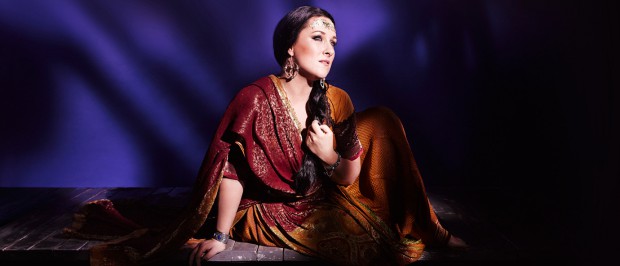Les pêcheurs de perle
Met Opera Live
This is the first production at the Metropolitan of Bizet’s early opera for a century, and it isn’t hard to understand why. What a tawdry piece it is, the kind of thing that might have been written deliberately to get Edward Said’s goat. Musically it contains one gem, the unforgettable duet for baritone and tenor, unforgettable any time you’ve heard it for at least a week. Bizet obviously knew when he was onto a good thing, for he recalls the tune countless times in the course of the opera. It has no motivic significance, but since he seems unable, in this opera, to think of any other decent melodies, the obvious thing to do was to keep audiences happy by using it to paste together a work which has almost no kind of coherence.
The Met’s Pêcheurs is sung and accompanied (there are a few interesting pieces of orchestration) as least as well as it deserves, under the enthusiastic baton of Gianandrea Noseda. The staging, however, is depressing, a kind of shanty town, ungainly for the performers and painful to look at, though on this occasion almost the whole work was transmitted in close-up. There are plenty of special effects, however, including an opening which would be the first scene of Das Rheingold of my dreams, and a most impressive conflagration at the end.
The bad habit of concentrating the camera on the person singing, not on whom s/he is singing to, was taken to extremes. That may have something to do with the fact that the star of the show was Mariusz Kwiecien (Zurga), looking as good as ever, but singing too loudly much of the time. At the beginning of Act 3 he is discovered in his office, surrounded by enough files to keep a horde of bureaucrats busy for a century – the projections cleverly turn the stacks of documents into a primitive high-rise.
For no dramatically justifiable reason he begins by taking off one sweatshirt and putting on another, which does seem to be pandering to his non-operatic fans. Matthew Polenzani, who plays his bosom friend cum rival Nadir, is less photogenic but sings more sensitively. The woman who disturbs their dreams is played by Diana Damrau, the veteran Queen of Night, whose voice not surprisingly shows signs of wear, except for some beautiful quiet singing. The chorus is on top form. I don’t suppose that the tacky old piece will get a better production than this in the near future, and there would be little point in trying to give it one.






Comments